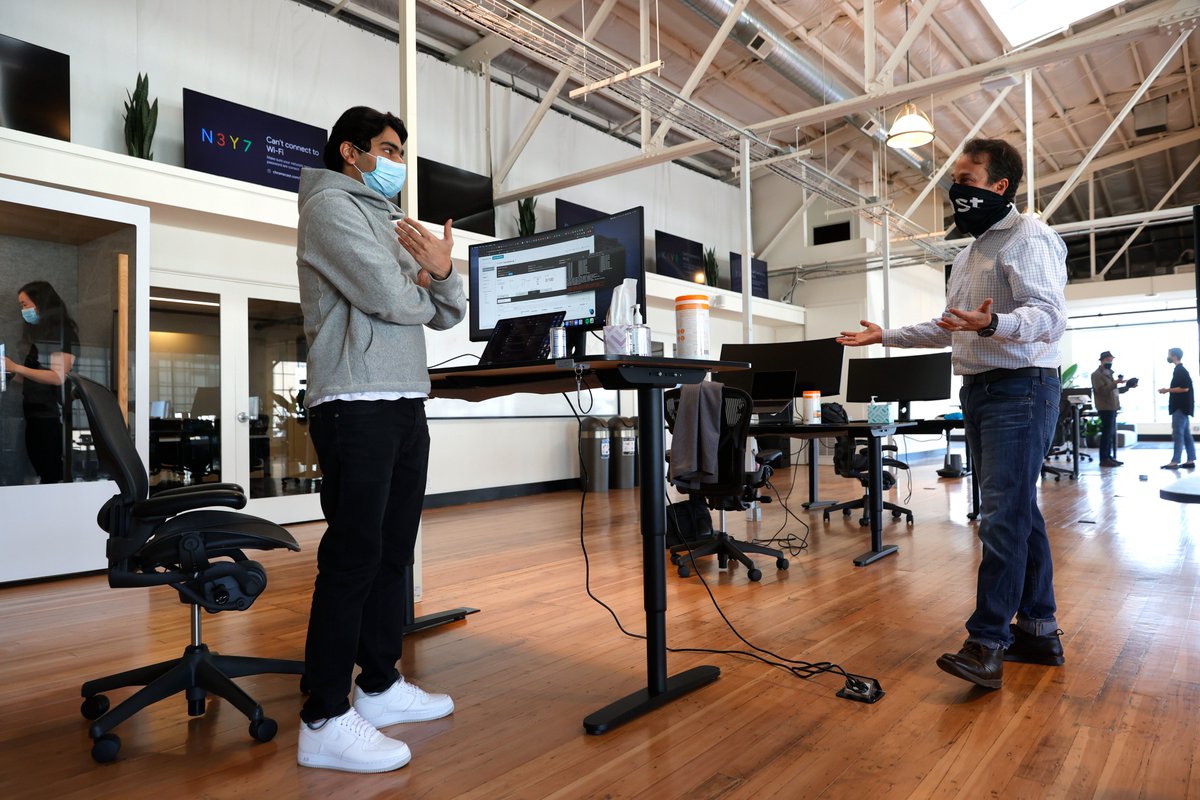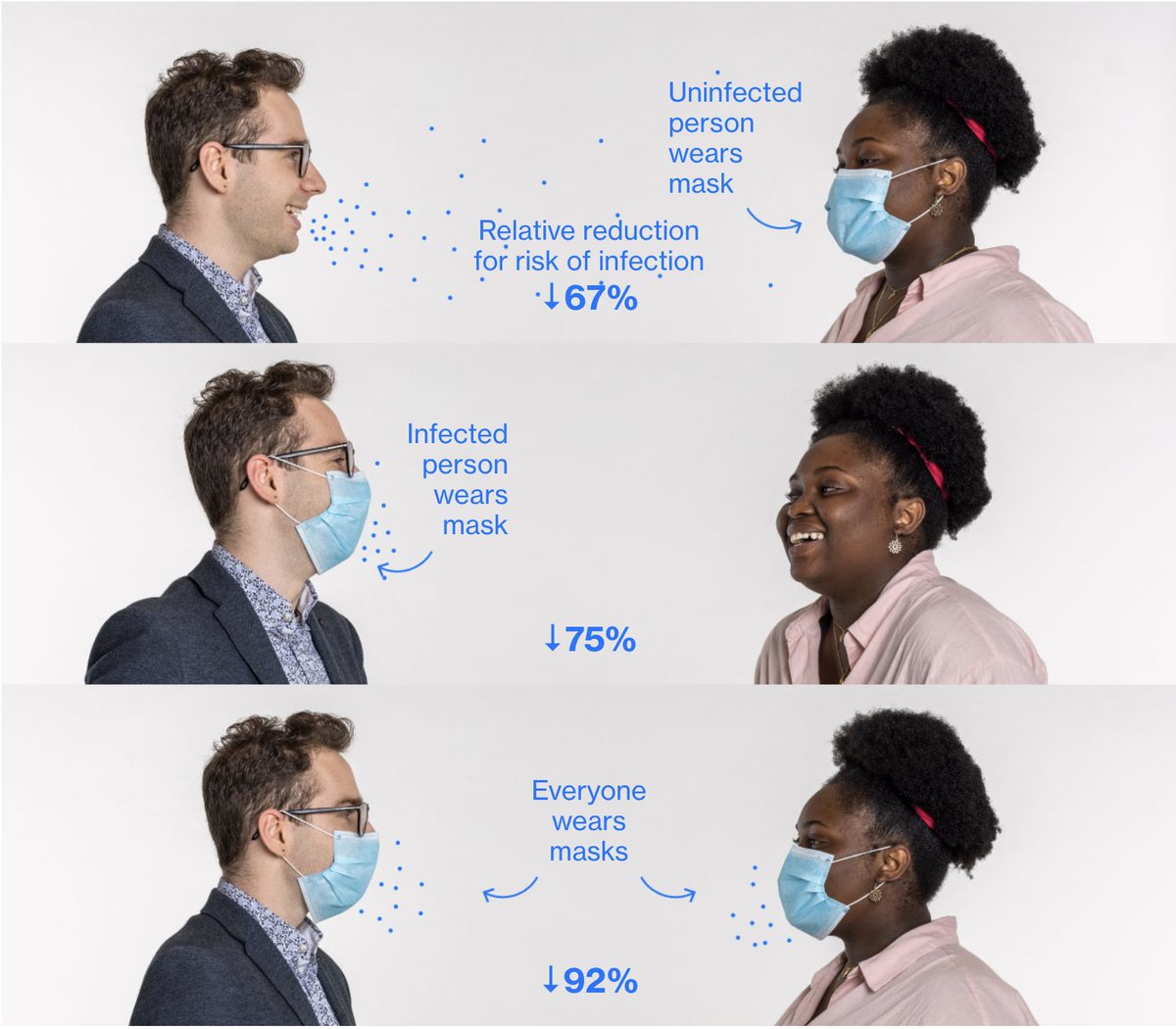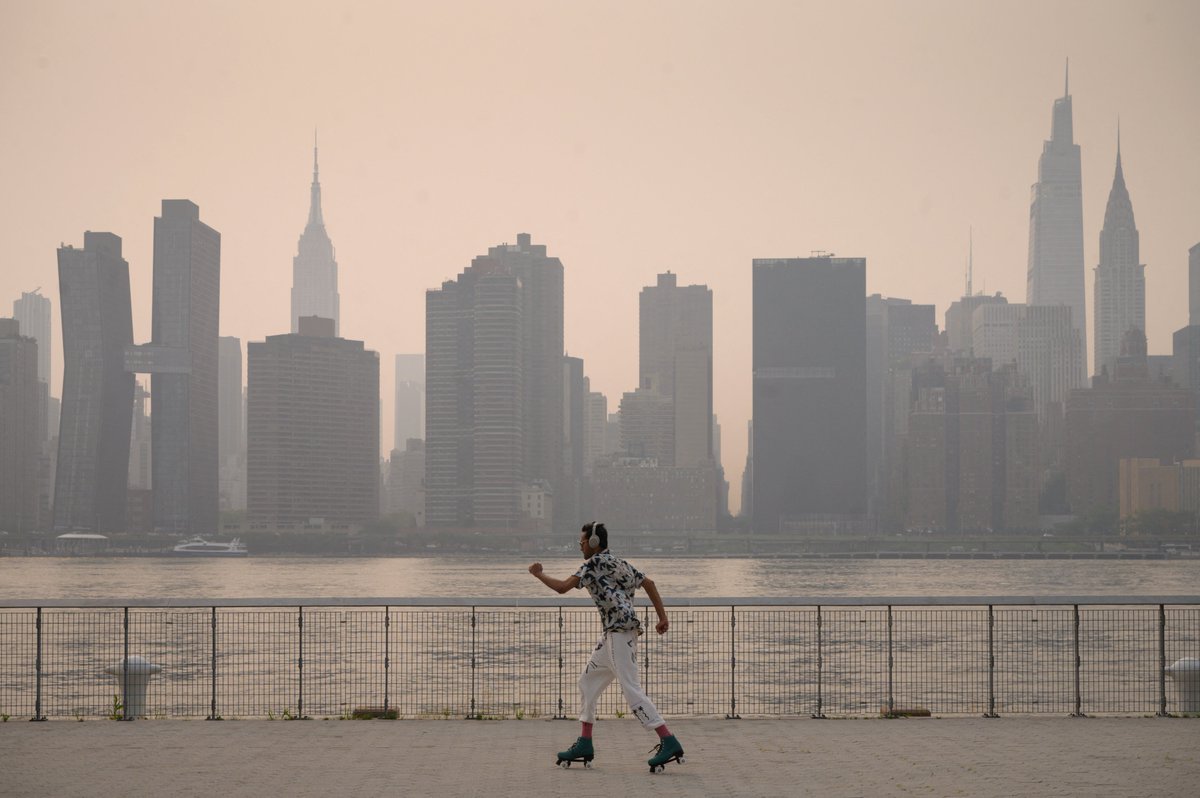
Walk around a supermarket in the U.S. or Europe, and you will see some empty shelves once more.
Supply chains are clogged at almost every stage between Asian factories and grocery stock rooms trib.al/3tWAqxD
Supply chains are clogged at almost every stage between Asian factories and grocery stock rooms trib.al/3tWAqxD
Rising prices and patchy availability mean it’s only a matter of time before shoppers start purchasing in bulk.
Supply lines are struggling as producers, who are responsible for making everything from sneakers to coffee, are hurt by Covid restrictions trib.al/xMk1jai
Supply lines are struggling as producers, who are responsible for making everything from sneakers to coffee, are hurt by Covid restrictions trib.al/xMk1jai

➡️ Surging virus cases and consumer demand are leading to congested ports
➡️ Shipping containers are in the wrong place
➡️ Sea freight costs are up tenfold
➡️ Shortages of workers to harvest and prepare foods are adding to the pressures trib.al/xMk1jai
➡️ Shipping containers are in the wrong place
➡️ Sea freight costs are up tenfold
➡️ Shortages of workers to harvest and prepare foods are adding to the pressures trib.al/xMk1jai
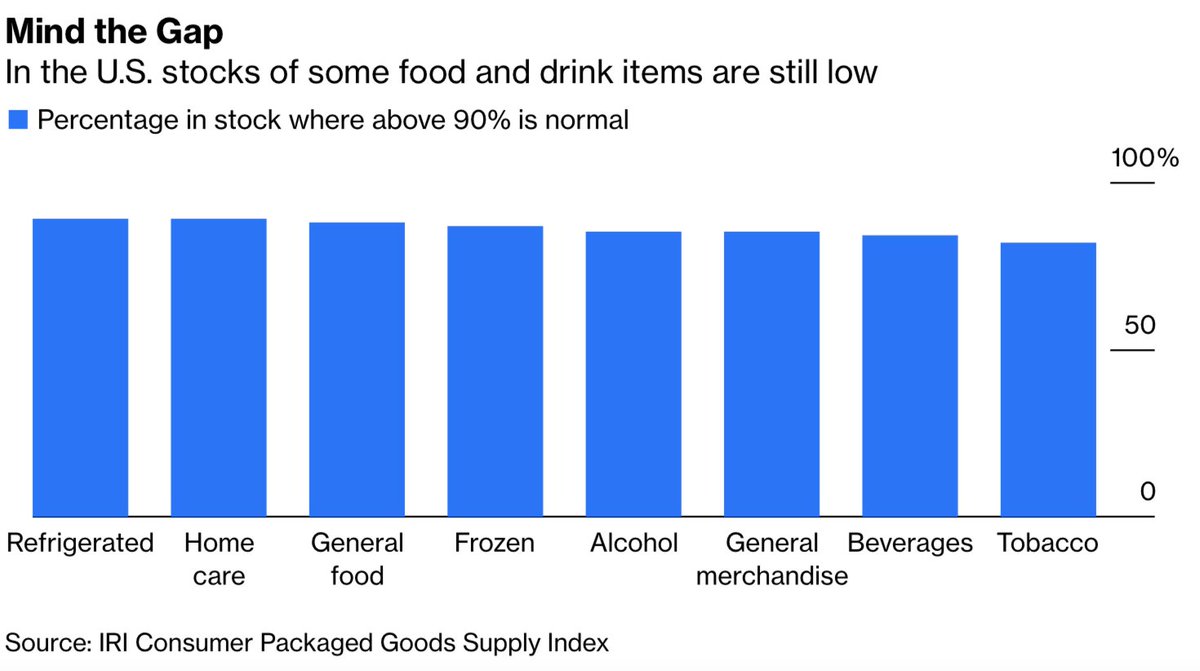
🧃 Beverages have been hurt by a shortage of packaging.
🥤 In Britain, a lack of C02 amid spiraling energy costs has put supplies of carbonated soft drinks at risk.
☕ Coffee and tea are hot commodities as many Americans continue to work remotely trib.al/xMk1jai
🥤 In Britain, a lack of C02 amid spiraling energy costs has put supplies of carbonated soft drinks at risk.
☕ Coffee and tea are hot commodities as many Americans continue to work remotely trib.al/xMk1jai

In-person learning has fueled a rush for school supplies, including those that go in lunchboxes.
Parents are now in a frantic state because of a run on Kraft's pre-packaged Lunchables trib.al/xMk1jai
Parents are now in a frantic state because of a run on Kraft's pre-packaged Lunchables trib.al/xMk1jai
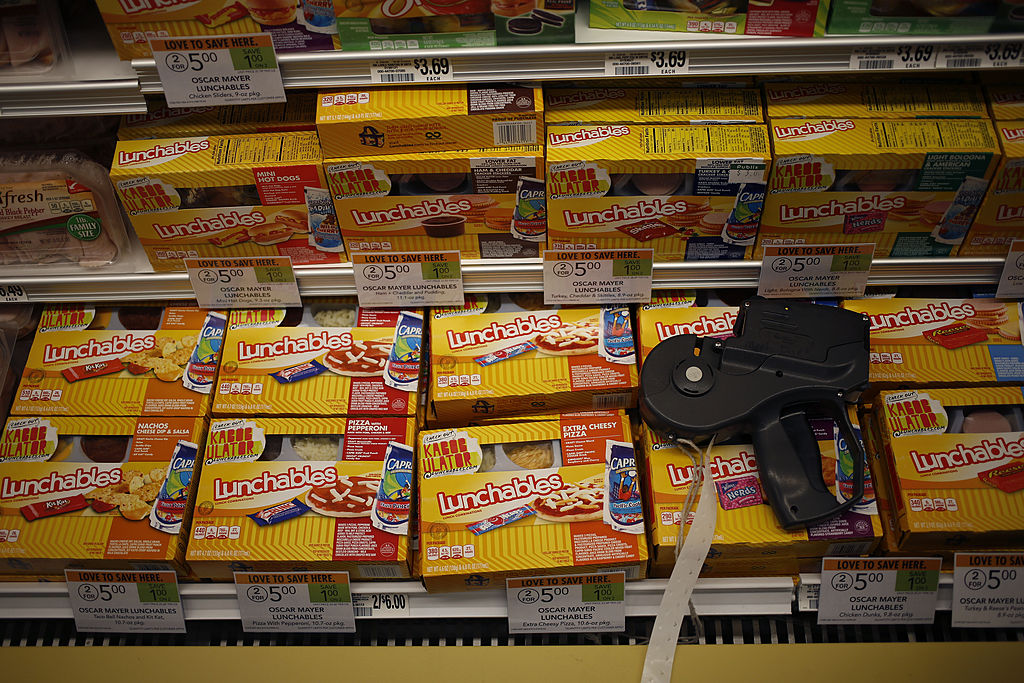
🐾 Pet food is another challenging area.
Purina maker Nestle has already ramped up capacity.
Some grocers are reporting a struggle to find enough dog treats and cat biscuits to meet the demand from all those new pandemic pets trib.al/xMk1jai
Purina maker Nestle has already ramped up capacity.
Some grocers are reporting a struggle to find enough dog treats and cat biscuits to meet the demand from all those new pandemic pets trib.al/xMk1jai
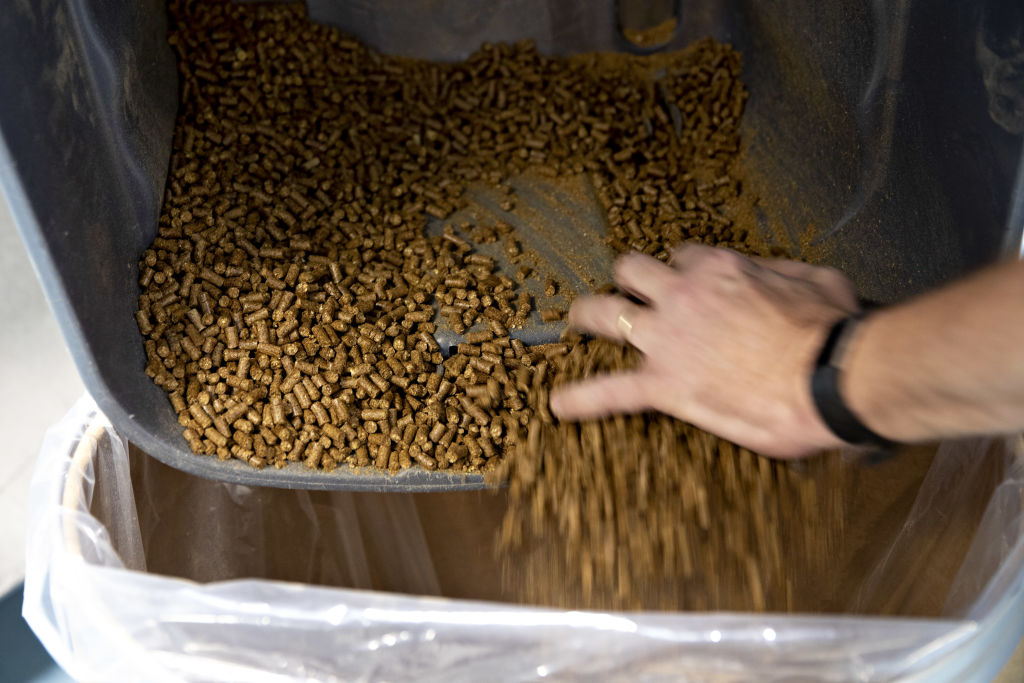
Retailers have been reengineering their supply chains to avoid the pinch points.
Some have been chartering their own ships.
Stores may have to cut back on the varieties of goods to reduce complexity, meaning fewer product choices for consumers trib.al/Mcu7J9F
Some have been chartering their own ships.
Stores may have to cut back on the varieties of goods to reduce complexity, meaning fewer product choices for consumers trib.al/Mcu7J9F
Grocers need to plan for the worst.
With the system so fragile now, what would happen with further spikes in prices, demand and panic-buying? trib.al/Mcu7J9F
With the system so fragile now, what would happen with further spikes in prices, demand and panic-buying? trib.al/Mcu7J9F

When prices go up, consumers tend to get proactive and change their habits.
Shoppers first switch out of pricier products to cheaper ones. That means ditching big brands for more competitive private labels trib.al/Mcu7J9F
Shoppers first switch out of pricier products to cheaper ones. That means ditching big brands for more competitive private labels trib.al/Mcu7J9F

With food costs expected to rise further, consumers may choose to load up on products such as pet food while they can.
It wouldn’t be surprising to see people get together with friends to buy giant packs of toilet paper or minced meat trib.al/Mcu7J9F
It wouldn’t be surprising to see people get together with friends to buy giant packs of toilet paper or minced meat trib.al/Mcu7J9F

While a little inflation is generally good for supermarkets, the danger comes when it exceeds manageable levels and consumers trade down to cheaper items.
Up until now, grocers haven’t had a bad pandemic. That may be about to change trib.al/Mcu7J9F
Up until now, grocers haven’t had a bad pandemic. That may be about to change trib.al/Mcu7J9F
• • •
Missing some Tweet in this thread? You can try to
force a refresh



